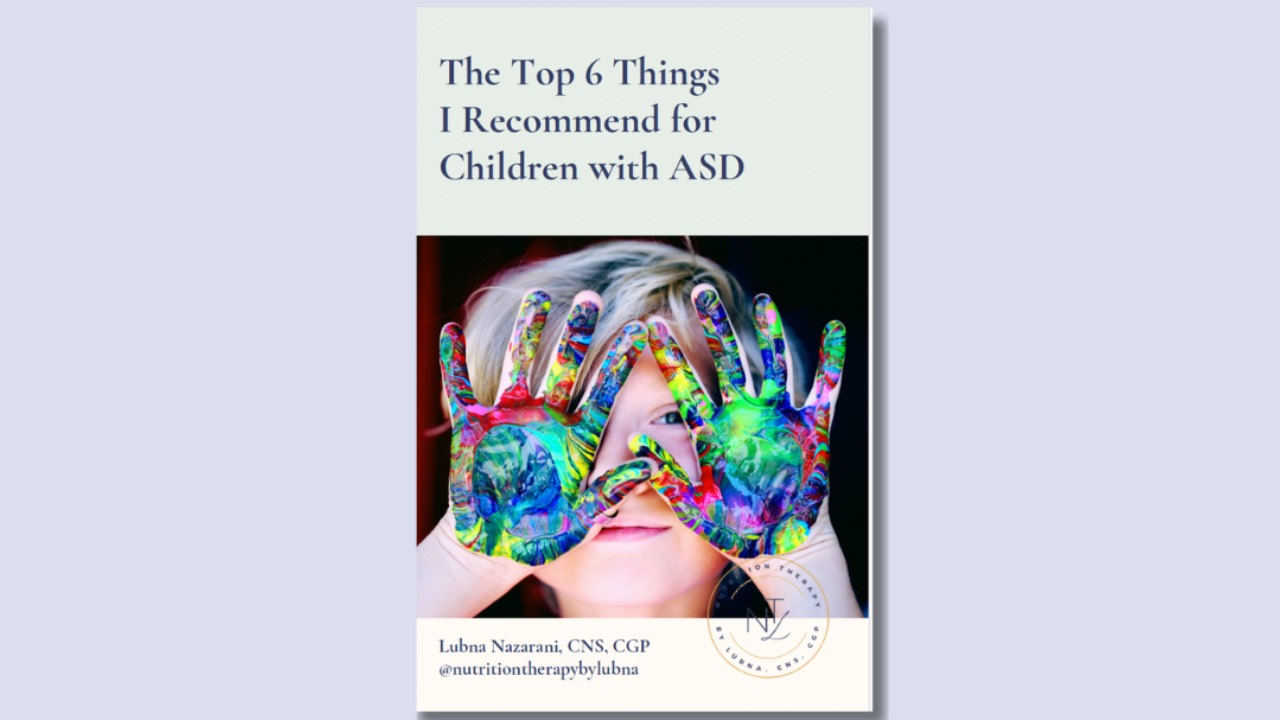Your Child’s Brain Runs on This (And It’s Probably Deficient)
Another month, another chance to lovingly roast ultra-processed snacks and preach the gospel of gut healing.
Every child’s brain needs the right nutrients to grow, focus, and thrive, and what I’m about to share applies to all kids. But if your child has autism, these nutrients become even more important. Kids with ASD often struggle with gut issues, picky eating, and inflammation, which can make deficiencies more likely and their impact more noticeable. That’s why nutrition isn’t optional support. It’s foundational.
Here are three things I want you to know if autism is part of your parenting story.
#1 Your child probably needs more Vitamin A: And no, I don't mean carrots
Vitamin A plays a huge role in the gut lining, immune modulation, and brain development—and it’s often severely deficient in kids with autism. Why? Because animal-sourced foods are being side-lined for plant-sourced versions. Because eating organ meat is unheard of in most homes. Because many of our picky eaters are eating beige, processed foods (think goldfish, pasta, and bread) that are devoid of this fundamental nutrient.
Low Vitamin A is linked to:
-
Poor gut integrity
-
Increased food sensitivities
-
More infections and illness
-
Delayed language and cognition
- Vision and developmental issues
When I support a child’s nutrition plan, vitamin A is one of the first things I assess—and no, I don’t mean gummy vitamins. I’m talking about real food sources that rebuild the body from the inside out.
Want to know if your child might be deficient? One red flag: chronic picky eating and aversion to animal fats.
Use animal-based sources (liver, egg yolks, fish) - that's the version your child's body needs and can make the most use of. Start slow, stay consistent, and yes, sometimes we need sneak it in.
#2 Let’s talk about the critical nutrient no one’s talking about
Why isn’t anyone talking about fat? Because we’ve spent decades demonizing it. The low-fat craze of the ‘90s didn’t just change adult diets, it trickled down into our kids’ lunchboxes, too. Now, we’ve got children growing up on fat-free yogurt, cereal bars, and endless crackers. All the while their developing brains are starving for the very nutrient they’re made of. Fat isn’t the enemy. For a child’s brain, it’s fuel.
Fat is essential for absorbing fat-soluble vitamins (like A, D, E, and K), supporting the immune system, and literally fueling brain development. And yet? Many of our kids are living off meals that are totally devoid of it or full of the wrong kinds of fat.
Focus on getting more butter, ghee, lard, and tallow onto their plates and into their bodies. Take out the rancid canola, soybean, sunflower oils found in packaged foods and drive-thru orders. As always, start low and slow, but be consistent and persistent.
Food is medicine.
When you start replacing fake foods with nourishing fats and calming proteins, everything starts to shift.
Chaos out. Clarity in.
#3 Want to support your child’s brain, behavior, and mood starting with food?
I created a free guide just for you:
The Top 5 Things Every Parent Should Know After an Autism Diagnosis
This isn’t fluff. These are the foundational things most parents are never told but should be. It’s straightforward, practical, and compassionate. And please forward this to friends that may find value in this information.
Whether your child was just diagnosed or you're still waiting for answers, this guide will help you feel more grounded and empowered.
👉 Or book a free strategy session and let's talk about your child’s needs
Because nutrition is not a side strategy; it’s central. And your child deserves every tool we’ve got.
With heart,
Lubna Nazarani, CNS, CGP
Follow me on Instagram for more tips and guidance: @nutritiontherapybylubna
www.nutritiontherapybylubna.com





